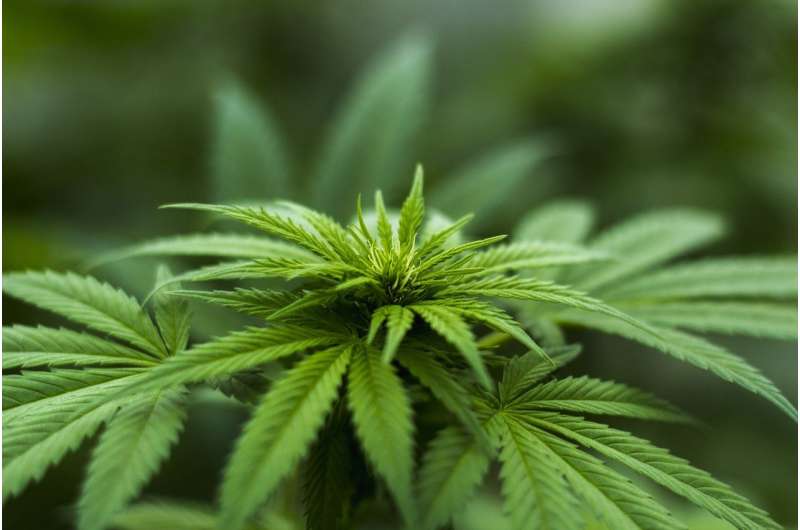Credit: CC0 Public Domain
Victoria University of Wellington research shows there has been almost no change to the level of crime in the United States since the legalisation of medical marijuana.
The research, led by Dr. Luke Chu from the School of Economics and Finance and former student Wilbur Townsend, studied national crime rates as well as rates in individual states that have passed medical marijuana laws, and found minor effects.
The exception was California, where violent and property crime reduced by 20 percent between 1996—when medical marijuana was legalised there—and 2013.
The researchers compared before and after data on specific crimes including murder, rape, robbery, aggravated assault, burglary, larceny and motor vehicle theft between states with and without legalised marijuana. Nearly all of the estimated changes in crime rates are close to zero at national and state levels.
California's 20 percent reduction in crime could be due to a range of factors, says Dr. Chu.
"There's no definitive answer as to why. California is a relatively liberal state and was the first U.S. state to legalise medical marijuana.
"Other recent studies have shown that medical marijuana laws cause an increase in heavy marijuana use, but a reduction in other acts including drunk driving, heroin usage and opioid addiction."
Dr. Chu says the findings are comparable to a New Zealand context. "I believe we would be unlikely to see a large surge in crime if it were legalised here."
Previous studies have explored the topic, but with conflicting findings, says Dr. Chu. This study is the first of its kind to examine state-specific effects.
"In addition to traditional regression analysis, we used a technique called synthetic control method to analyse the data. This allows us to take into account pre-law differences in crime trends without making extra assumptions."
The study, led by Wilbur as part of his Honours thesis, was recently published in the Journal of Economic Behavior & Organization.
Journal information: Journal of Economic Behaviour and Organisation
Provided by Victoria University of Wellington






















